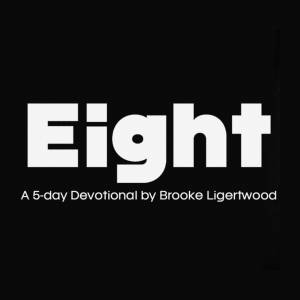
Lead Me To The Cross Devotional
“Saviour I come, quiet my soul, remember.”
Approach, posture, reflection.
These three simple actions at the beginning of prayer have been hallmarks of my own devotional journey for decades now.
Firstly, my choice to approach. As a recent paraphrase of Psalm 100, “the Lord is always good and ready to receive me," but I’ve learned it is still always my choice as to whether or not I will come to Him. Oh what a world of difference our lives become based on the choices we make.
Secondly, my posture. A life of prayer means that I am invited into an ongoing conversation with the Father in whatever state I’m in. (Thank God!)
Occasionally, I come to God bouncy and grateful, astonished in wonder and aflame with love. But often I come to God all bombastic and blustery, flustered, frustrated, mad, sad, indignant, any number of things – and that’s actually wonderful – because the point is that whatever state I’m in, I’ve stepped “through the door” so to speak. I’ve come. And once I have, He has a way of sorting me out, calming me, helping me settle into the posture of quieting my soul, even if the way I’ve come in is anything but quiet, getting into a place where I’m ready to listen: “I’m here, Lord."
Thirdly, remembering. Remembering who He is, tracing the lines of His faithfulness in my life, remembering the promises, power and hope that issue from the Father’s supreme gift. His Son died on the cross for us. I fix my eyes on my Savior. I focus my heart and mind and soul and remember that I might press on with the right things in focus.
Approach, posture, reflection and then, consideration. In the light of the cross, we can now rightly consider all that we would bring to the Lord in prayer. We can allow His love, grace, truth and mercy to teach, lead and guide us.
I finish with the glorious consideration of Paul in Philippians 3.
Philippians 3:7-14 “But whatever were gains to me I now consider loss for the sake of Christ. 8 What is more, I consider everything a loss because of the surpassing worth of knowing Christ Jesus my Lord, for whose sake I have lost all things. I consider them garbage, that I may gain Christ. 9 and be found in him, not having a righteousness of my own that comes from the law, but that which is through faith in Christ—the righteousness that comes from God on the basis of faith. 10 I want to know Christ—yes, to know the power of his resurrection and participation in his sufferings, becoming like him in his death. 11 and so, somehow, attaining to the resurrection from the dead. 12 Not that I have already obtained all this, or have already arrived at my goal, but I press on to take hold of that for which Christ Jesus took hold of me. 13 Brothers and sisters, I do not consider myself yet to have taken hold of it. But one thing I do: Forgetting what is behind and straining toward what is ahead. 14 I press on toward the goal to win the prize for which God has called me heavenward in Christ Jesus.”
Original post by Brooke Ligertwood available on YouVersion. A five-day reading plan exploring some of the Biblical perspectives that anchor Brooke’s album, EIGHT. Enjoy devotionals that journey through themes like the fear of the Lord, postures in prayer, enduring in wilderness seasons, enjoying God, and choosing Him in response to His choice of us!, as well as featuring lyrics and music from songs throughout the Album EIGHT by Brooke Ligertwood.
